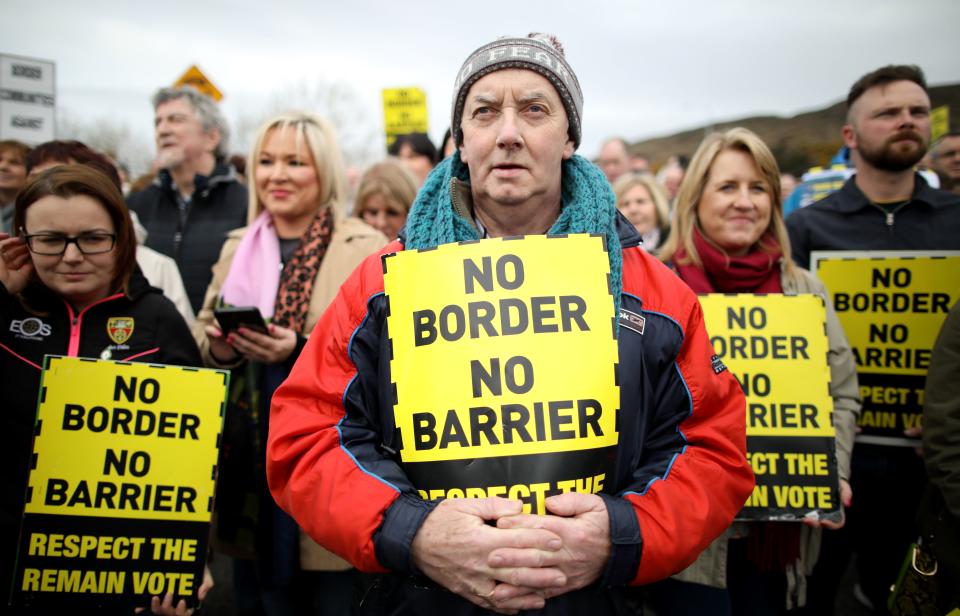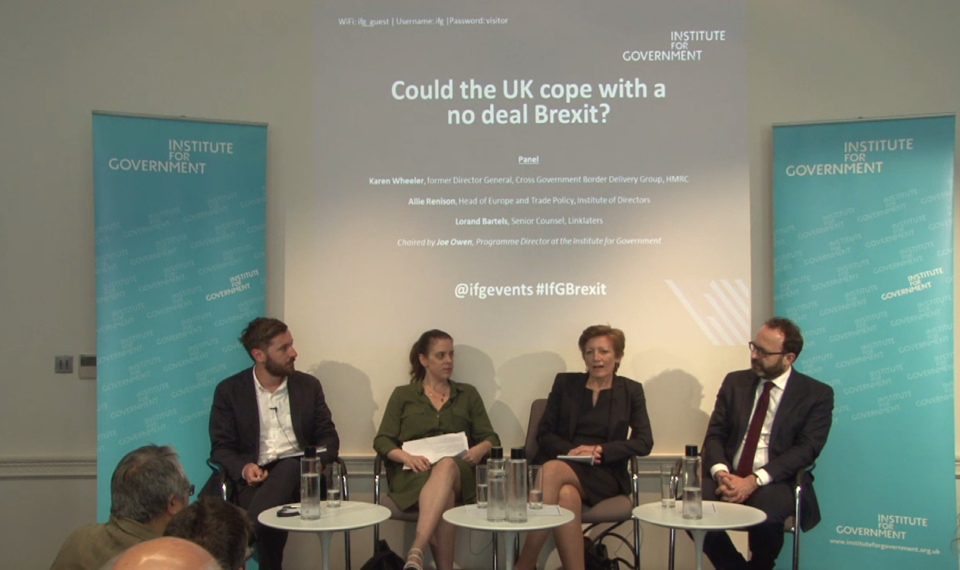'Preparing for crisis': ex-HMRC border chief on no-deal Brexit

A former HMRC border chief said it felt like the government was “preparing for a crisis” in the run-up to a potential no-deal Brexit in March this year.
Karen Wheeler, former director general of HMRC’s cross-government border delivery group, also said “technology alone is not going to solve the border problem” on the island of Ireland.
The comments cast doubt on Conservative party leadership candidates Jeremy Hunt and Boris Johnson’s hopes of a technological fix to the row over the Irish backstop. Fears of a return to a hard border have dogged prime minister Theresa May’s Brexit negotiations with the European Union.
Wheeler, whose resignation last month was a blow to the government, warned it was not enough for the government to be “ready” for a no-deal departure. Firms and other organisations also had to be prepared, she said.
READ MORE: Hammond: no-deal Brexit will cost Treasury £90bn
She said the government had done a significant amount of work to prepare, but added, “What it doesn’t mean is that everything will be fine. There are consequences if traders and businesses are not ready.”
She said Calais, Dover, and Folkestone could be “clogged up” with trucks if drivers could not prove they met new customs checks likely under a no-deal Brexit.

The former civil servant spoke frankly about the challenges of contingency planning at an Institute for Government event on Wednesday morning, admitting the government “couldn’t fully understand how it would play out.”
Wheeler said the government could never be fully prepared on maintaining trade across the Channel and the Irish border. Both borders, she said, were areas where “frankly you can’t mitigate those risks away.”
She also said it was “almost impossible” for Northern Irish firms to prepare because of the scale of uncertainty over the future of the Irish border.
READ MORE: Brexit voting areas most at risk of heavy job losses from automation
Wheeler said UK officials had only begun to speak to Northern Irish businesses “relatively late in the day,” giving them “much less time” to get ready for potential border checks and disruption.
She said it was not enough that the UK had outlined plans to keep trade flowing smoothly on the Northern Irish side of the border unless similar arrangements could be maintained on the other side.
It remained “very unclear” how Ireland planned to deal with its side of the border, she said.